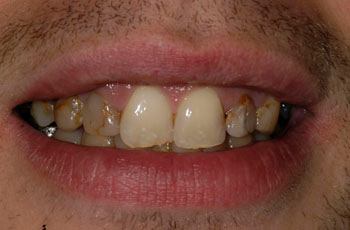Effects of breastfeeding on children’s dental health
 Numerous studies published over the years have promoted the various health benefits of long-term breastfeeding for children, but new research by a team of academics at the University of California, San Francisco, believes that frequent breastfeeding after the age of two may in fact increase the risk of tooth decay in children.
Numerous studies published over the years have promoted the various health benefits of long-term breastfeeding for children, but new research by a team of academics at the University of California, San Francisco, believes that frequent breastfeeding after the age of two may in fact increase the risk of tooth decay in children.
The World Health Organisation (WHO) recommends that babies be exclusively breastfed during the first six months, continuing to the age of two and beyond along with the consumption of solid foods. Even though breastfeeding itself does not cause cavities, the researchers believe that the actual process of sucking may be related to the problem.
For their study, the academics examined the teeth of 458 babies born in low-income families in Porto Alegre, Brazil. Their dental health was assessed at the ages of six months, 12 months and 36 months. Results showed that 40% of the babies breastfed between six months and 24 months developed tooth decay, while the figure reached 48% among frequently breastfed toddlers beyond that age, Reuters reported.
The exact reason for this is not clear but researchers speculate that during breastfeeding, a baby’s teeth have no proper contact with saliva, which has been scientifically proven to protect the mouth against oral bacteria. Breastfeeding, therefore, leaves the teeth exposed to the adverse effects of leftover food residue.
This is particularly noticeable among babies who sleep while sucking and often drink milk during the night, as this can prevent the normal circulation of saliva in their mouth, the study found.
Learn more about Children’s Dental Health
- Are Children’s School Eating Habits Affecting Their Oral Health?
- Dental Cavities May Impede Children’s Growth.
- Just Half Of UK Parents Make Sure Children Brush Their Teeth.
Similar Posts
TOOTH DECAY AFFECTS 27% OF FIVE-YEAR-OLDS
The number of five-year-old children with tooth decay is falling. But in spite of that, over one in four children have the condition, figures released by Public Health England suggest.
Based on 133,000 dental examinations in the UK, the Public Health England survey covered more than one-fifth of the nation’s five-year-olds.
Results showed that the proportion of children with tooth decay was 27%, down from 30% recorded during the previous analysis in 2008.
SHOULD TOOTH DECAY IN YOUNG CHILDREN BE TREATED WITH A FILLING?
According to new research by the University of Manchester, one in ten British children at the age of five have a filling and about two in five have tooth decay.
However, many dental experts claim there is no need to fill milk teeth unless they cause pain or discomfort, as they will fall out anyway.